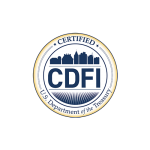Coping with Inflation

Inflation is hurting American households across the country, especially the working class. Every time you go to the grocery store or fill up your gas tank you feel the shock of rising prices. Currently, we are experiencing the fastest rate of inflation in 40 years. For many of us, it is anxiety-producing just to shop for food. We are all looking for practical ways to cope with the reality of inflation.
Inflation, however, affects different households in different ways and impacts the lowest-income households the most. No matter where you fall in the income scale the reality of increased prices will affect you. The question becomes how can you cope with rising costs and what can you do to take control of your finances.
First, Keep a Cool Head About the Rising Cost of Living
It’s easy to feel panicky and overwhelmed by the headlines right now, which are saturated by the cost-of-living crisis. If you are experiencing feelings of anxiety and panic because of the news, start by switching the TV off and focus on your own financial situation.
Money management in the era of inflation is a real concern and demands that we make adjustments to our spending. Worrying will only add to your problems so it is best to address the problem head. Resolve to be more serious about your spending and identify areas where you can cut back.
How Can I Start to Manage My Finances Better?
Begin by deciding to take control of your budget. Examine the “what and why’” of how you are spending your money. Determine what your fixed expenses are and what you must make to cover the rent, car, utilities phone, and insurance.
Once you have a handle on your expenses you can prioritize your spending. This will help you determine how much disposable money you have each month after your basic needs are met.
Use an App That’s Linked to Your Bank Account So That You Can Track Your Money
Budgeting in today’s world requires more than a spreadsheet. Fortunately, there are apps such as Emma, that link to your bank account so that you can constantly track your money and can see what is coming in and going out. These apps also show you where some bills have gone up and provide comparisons of where you can get cheaper services.
Constantly reviewing your budget is one of the most “essential” things you can do to make an impact on your savings. Incoming and outgoing transactions change month to month depending on your various needs.
Inflation is forcing many of us to cut back on many non-essential spending like entertainment and personal wants. But what do you do when buying groceries breaks the bank? Here are some tips you can follow to save money on your next grocery run.
Practical Ways to Save on Groceries
Americans spend an average of $5,174 a year, or roughly $431 a month, on groceries. Since the onset of the pandemic in February, the cost of food staples, like meat and eggs, rose the fastest in over a decade.
Write a list and stick to it
If you go to the supermarket without a list, it can be easy to grab things that aren’t needed. And even if you have a list, it can be hard to follow it if you bring your kids and/or shop on an empty stomach. The next time you go to the grocery store, make sure you have a list and stick to it. You may also want to consider eating first or leaving the kids at home to avoid impulse buys.
Pay with a grocery rewards card
Using the right form of payment at checkout can help you earn rewards that can be used to offset your bill. While a generic cashback card like the Citi® Double Cash Card can earn you 2% cashback (1% on all purchases and an additional 1% after you pay your credit card bill), there are specific grocery rewards cards that can earn you up to 6% back.
Sign up for the loyalty program
Most grocery stores offer loyalty programs that are free to join. By signing up, you can benefit from member-only discounts that automatically deduct at checkout — without the need to clip coupons.
Brand and store coupons
After you’ve signed up for your favorite grocery store’s loyalty program, maximize your savings by using coupons for additional discounts. Look out for the weekly circular in the mail and sift through the pages for deals that matter to you. Cut out any coupons and save them for your next grocery run.
Buy sale items
Supermarkets are always running various promotions that can help you save on everything from staples, like milk and eggs, to various snacks. Consider buying items on sale whenever possible, especially if the cost is normally high. Stock up on-sale items and work towards building up your pantry.
Avoid pre-packaged items
While buying pre-cut veggies or pre-shredded cheese can save you time while cooking, stores often charge more for the convenience. Select whole items, like fresh or frozen veggies and block cheese. Stay away from processed or packaged foods, it is both healthy and cost-effective.
Buy generic brands
Supermarkets put the costly, name-brand items at eye level, which can tempt you to spend more money on high-cost items. But if you look at the top or bottom of the shelves, you’ll often find generic brands, like the store’s own brand, that are cheaper and often taste just as good. Next time you go shopping, opt for a generic brand to save money.
The Bottom Line
Inflation is real and takes a toll both financially and emotionally. The best way to cope with inflation is to address it head-on by deciding to manage your budget more effectively. Be smart and use shopping strategies that can save you money.
Remember that inflationary cycles don’t last forever and by keeping a cool head when making purchases, you will be successful in dealing with inflation.





